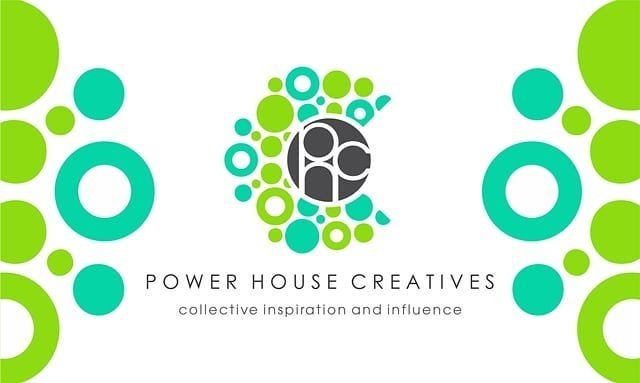I guess the title of this post asks one of those questions marketers and social psychologists have been trying to answer for many many years.
And I suppose personal experience (Yes, I spent some years as a "marketing geek") tells me that there's no one simple and easy answer to this question. And yet? We keep trying to answer it, because we want to know "what it takes."

Desert view, near Joshua Tree, California
Repetition DOES Matter!
Whereas we tend to find promotional messages "annoying and repetitive" after a while, bottom line is that repetition does matter.
We see hundreds — if not thousands — of messages daily, and only a tiny minority of them end up getting stuck in our "active" memory. But what remains in the "foreground," and what ends up forgotten? And why?
Beyond that, there are an awful lot of "it depends" conditions involved in the equation, many of them connected to just who the intended recipient of a message might be.
What sort of short term memory do you have? How receptive are you, to a specific message? How relevant is any given topic to you? How suggestible are you?

Raindrops on leaves
More Hints of Repetition...
One of my own experiences in examining the effects of repetition came when a friend of mine challenged me to "learn" to shave with my left (non-dominant) hand, to the point where it felt "natural;" to where I — in fact — would automatically go to my left hand.

Apple blossoms
Conventional "wisdom" says it takes about 28 days to change a habit.
It actually took me about 50.
Not so much to actually become proficient with my left hand (that actually just took a little over two weeks), but to reach a point where it had actually become a habit.
But did it really become a habit?
This experiment was done back when I was in my early 30s. I'm currently 58, and these days I shave with my right (dominant) hand again. So truthfully, although I managed to make the process "natural," I still slowly "drifted" back to my original way of doing things.
However, if I started today, it would take me perhaps a week to go back to using my left hand, because a sort of "muscle memory" remains.
I bring this example up because the same can often be applied to thought patterns and emotional habits. Hereunder, how we respond to particular marketing messages that are relevant to our worlds.
The Rewards Factor
Of course, there was no real ongoing reward or purpose for my continuing to shave with my left hand... and we humans tend to be very rewards based.
Marketing and advertising is a little different, because typically there is the suggestion of the "reward" that somehow our lives will be better if we act on whatever message we're being asked to act on.

White rhododendron in bloom
The idea of rewards can be complex, and can suggest any number of things, both intrinsic and extrinsic... from simply "showing loyalty" to something a friend of ours is part of, to something that might be a critical part of better health... like exercising, or cutting some type of unhealthy food out of our diets.
On the surface, most people's minds automatically moves to "money!" but most of us don't actually care about money... we care about associated feelings that occur as a result of having money, which typically is a measure of freedom.
Social Media: Using and Following
Now, this post might have come across as rather dry and "educational," but there's actually a more present and relevant point here:
Here in the Steemitsphere, we are users of social media, consumers of social content, and for many of us we are trying to understand what it TAKES to be "seen" and to build followings, and so on.
And that's where we get back to the original question, up top:
How many times do you have to SEE or DO something before it sinks in?
Many people join this social platform, but they never "get in the habit" of becoming active members of the community. Why? What went wrong?
How many times do you have to see a user's name before you decide to check them out?
How long before it feels "natural" to use this as one of your windows to the world, and post daily, or three times a week... or whatever a "regular schedule" looks like? And what keeps you going, and what causes you to stop?
How dependent is the "habit" you may form on the potential "reward" you may receive? Is it "about the money," or is it about the level of readership and engagement?
What makes a "habit," and what makes you stick to it... or break it?
Thanks for reading!
Comments, feedback and other interaction is invited and welcomed! Because — after all — SOCIAL content is about interacting, right? Leave a comment-- share your experiences-- be part of the conversation!

(As always, all text and images by the author, unless otherwise credited. This is original content, created expressly for Steemit)
Created at 190216 13:33 PST
0889
My opinion is...if something (marketers) come looking for me..that makes me their PREY.
I don't like that.
If something comes looking for me I don't trust them one little bit.
Any data or information that comes TO me is suspect (a lie)
I only trust what I track down and verify a half dozen times.
History, marketers, and salesmen...are lies.
Downvoting a post can decrease pending rewards and make it less visible. Common reasons:
Submit
Fair 'nuff.
Stuff that feels like it is being "forced" on me definitely gets researched thoroughly.
At the same time, I try to remain open to the very likely possibility that there's lots of stuff that will be completely new to me. And verifiably useful to me, as well.
Downvoting a post can decrease pending rewards and make it less visible. Common reasons:
Submit
Morning @denmarkguy, agree wholeheartedly to your post. The power of marketing, repetition and people's susceptibility to suggestions is alive and well. I believe that it is proven time and time again. Personally I am very aware when a message impacts on me and I cannot help myself but check it out, buy it, investigate or change a habit. This is such an intriguing topic.
Downvoting a post can decrease pending rewards and make it less visible. Common reasons:
Submit
I try to view things with a mixture of open curiosity and healthy skepticism. Which sometimes leads to some very interesting discussions...
Downvoting a post can decrease pending rewards and make it less visible. Common reasons:
Submit